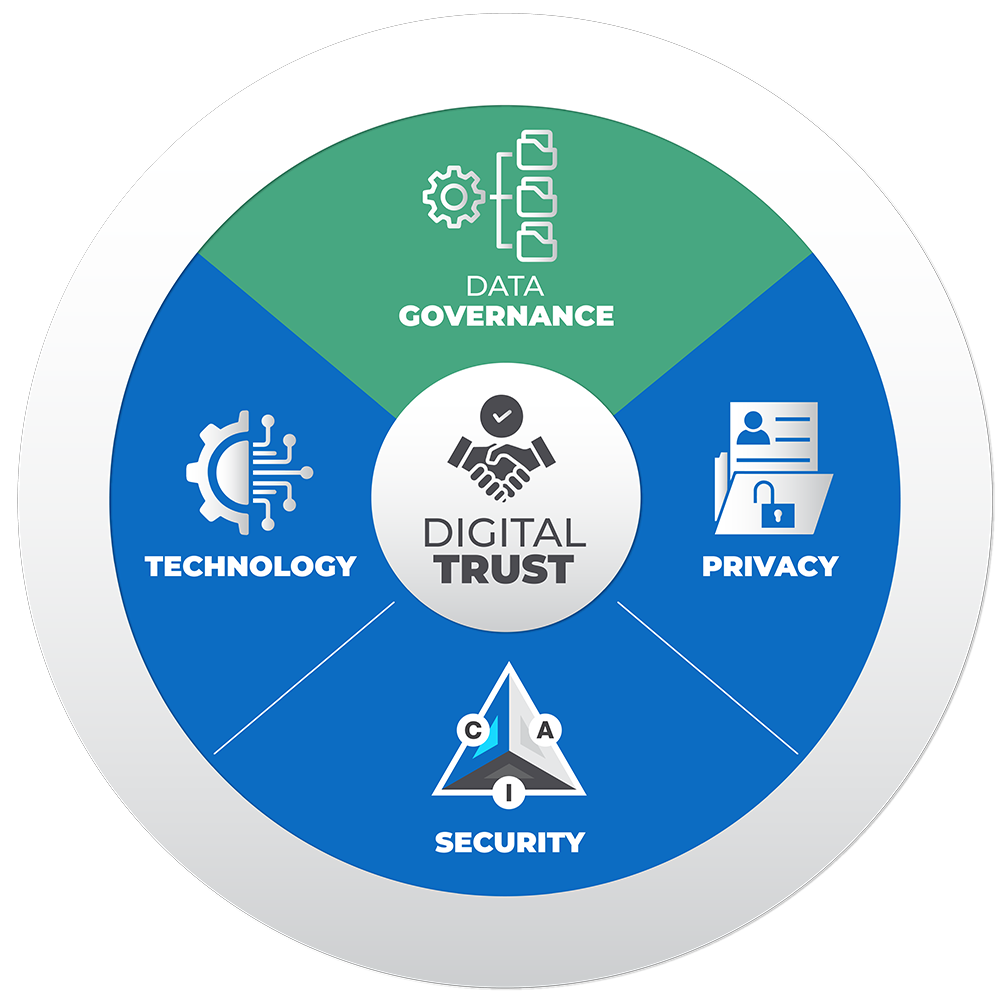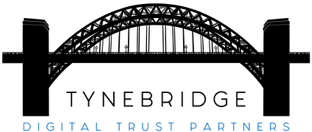data governance
By Design
data governance by design
 Data needs to be governed and managed responsibly. Effectively governing and managing your data begins with identifying what your organization’s most valuable and most sensitive data is. Data management refers to the organization and management of data throughout its lifecycle to achieve strategic business goals. Data management efforts are best spent on the most critical data and ensuring that your data is useable and trustworthy. Managing data is ongoing, not just a point-in-time exercise. Data governance refers to oversight and making sure that your data is being properly managed, beginning with proactively governing your ‘dark data.’ Implementing accountability which comes through data governance reduces your risk and strengthens strategic decision making.
Data needs to be governed and managed responsibly. Effectively governing and managing your data begins with identifying what your organization’s most valuable and most sensitive data is. Data management refers to the organization and management of data throughout its lifecycle to achieve strategic business goals. Data management efforts are best spent on the most critical data and ensuring that your data is useable and trustworthy. Managing data is ongoing, not just a point-in-time exercise. Data governance refers to oversight and making sure that your data is being properly managed, beginning with proactively governing your ‘dark data.’ Implementing accountability which comes through data governance reduces your risk and strengthens strategic decision making.
Elements of a Data Governance & Management program:
- Data Governance provides the authority and control over the planning and implementation of your data management practices.
- Data Catalog and Metadata focuses on enabling effective access to high quality integrated metadata.
- Data Quality focuses on the improvement of the quality of your organization’ data, ensuring that data is fit for purpose based on application functions and consumers’ requirements.
- Data Operations focuses on the design, implementation, and support for data storage to maximize data value throughout its lifecycle from creation/acquisition to disposal.
- Document and Content Management involves controlling the capture, storage, access, and use of documents and content stored outside of relational databases.
- Data Architecture & Modeling involves defining and building your organization’s data architecture and data model.
- Data Sharing and Interoperability involves the collection of data from different sources and consists of integration solutions fostering a harmonious internal and external communication between various IT components ,as well as a Data Sharing process that enable an organized and standardized exchange of data between entities.
- Reference and Master Data Management allows to link all critical data to a single master file, providing a common point of reference for all critical data.
- Business Intelligence and Analytics focuses on analyzing your organization’s data records to extract insight and to draw conclusions about the information uncovered.
- Data Value Realization involves the continuous evaluation of data assets for potential data driven use cases that generate revenue or reduce operating costs for the organization.
- Open Data focuses on your organization’s data which could be made available for public consumption to enhance transparency, accelerate innovation, and foster economic growth.
- Freedom of Information focuses on providing data owners with access to their information, portraying the process for accessing such information. and the appeal mechanism in the event of a dispute.
- Data Classification involves the categorization of data so that it may be used and protected efficiently. Data Classification levels are assigned following an impact assessment determining the potential damages caused by the mishandling of data or unauthorized access to data.
- Personal Data Protection focuses on protection of a data subject’s entitlement to the proper handling and non-disclosure of their personal information.
DATA GOVERNANCE BUILDS DIGITAL TRUST – Data Governance is a critical, foundational cornerstone of Digital Trust. Building infrastructure around data helps create value for your customers. When you are governing and managing your data, your organization is able to get value from your data to make better business decisions, improve processes, reduce risks, and become more profitable. It allows you to be transparent with your clients about how well you are looking after the information they have entrusted to you. It paves the way for your data privacy, cyber security, and IT efforts, and results in your data itself being higher-quality and more trustworthy. Your data should be secure, usable, and high-quality (reliable, trustworthy fit for its intended purpose). Tynebridge data governance leaders and practitioners work with our data privacy, cyber security, and IT professionals to facilitate the complete digital trust experience for our clients.

